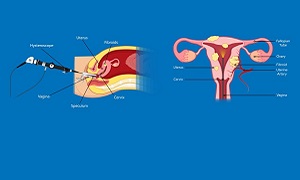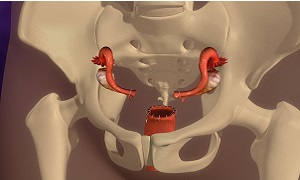Best Doctors in India for Menorrhagia (Heavy Menstrual Bleeding) Treatment
Best Hospitals in India for Menorrhagia (Heavy Menstrual Bleeding) Treatment
- City: Mumbai, India
Hospital Highlights:
- Fortis Hiranandani hospital was established in 2007.
- The hospital is an advanced tertiary care, multi-specialty hospital equipped with 149 beds.
- The hospital is equipped with a super ICU to provide emergency medical care to critically ill patients.
- The hospital is NABH accredited.
- The critical care facility in the hospital is augmented with the state-of-the-art facilities that facilitate speedier diagnosis and efficient monitoring.
- The hospital provides specialty medical services in cardiology, orthopedic science, pediatric science, neurology, diabetic care, urology, nephrology, ENT, obstetrics, gynecology, cosmetic surgery, bariatric surgery, neuro and spine care.
- City: Gurugram, India
Hospital Highlights:
- W Pratiksha Hospital, Gurugram, is one of the best hospitals in the NCR region. It is also a top hospital in India for IVF. Since its inception, the hospital has performed over 5500 successful IVFs. The hospital also specializes in gynecology.
- With over 20 years of experience in providing quality healthcare, the hospital is known as one of the most trusted and valued health providers in India.
- Equipped with world-class medical facilities and advanced technology, the hospital’s doctors and clinicians also have a track record of delivering excellent results. The hospital is also known for focusing on preventive well-being as much as on curative treatment.
- The hospital has earned the trust of its patients, by providing the best available treatments at affordable costs.
- City: Gurugram, India
Hospital Highlights:
- Paras hospital was established in 2006 and is the 250 bedded flagship hospital of Paras Healthcare.
- The is supported by a team of doctors of international and national repute.
- The hospital is NABH accredited and also the first hospital in the region to have a NABL accredited laboratory.
- The hospital provides specialty medical services in around 55 departments including Neurosciences, Joint Replacement, Mother & Child Care, Minimal Invasive Surgery, Gynecology and Obstetrics, Ophthalmology, Dermatology, Endocrinology, Rheumatology, Cosmetic and Plastic surgery.
- The hospital is equipped with state-of-the-art technologies.
- City: Kolkata, India
Hospital Highlights:
- Fortis Hospital, Anandapur, Kolkata is a world-class super-speciality equipped with the latest technologies in the medical world.
- The hospital is NABH accredited.
- This state-of-the-art facility specializes in cardiology and cardiac surgery, urology, nephrology, neurosciences, orthopaedics, digestive care, emergency care and critical care.
- The hospital, governed by integrated Building Management System (IBMS), has a pneumatic chute system, for quick vertical and horizontal transportation between floors, facilitating speedy transfer of patient specimens, documents, reports, and medicines to the concerned departments.
- The hospital also has a nephrology department with over 28 advanced dialysis units.
- City: Mumbai, India
Hospital Highlights:
- SL Raheja hospital is a 140-bed multi-specialty tertiary care hospital that is being managed by Fortis Healthcare Ltd.
- The hospital is a benchmark in healthcare and medical facilities in the neighborhood of Mahim & the western suburbs.
- L.Raheja Hospital, Mahim has one of the most effective ICU and Casualty care services.
- The hospital provides specialty medical services in Cardiology, Oncology, Neurology, Orthopedics, Mother & Child Care, and in Diabetes.
- City: Mumbai, India
Hospital Highlights:
- Wockhardt Hospitals were established in the year 1973, originally called First Hospitals and Heart Institute.
- Wockhardt Hospitals are super specialty health care networks in India, nurtured by Wockhardt Ltd, India’s 5th largest Pharmaceutical and Healthcare company.
- Wockhardt Hospitals is associated with Partners Harvard Medical International, an international arm of Harvard Medical School, USA.
- Wockhardt Heart Hospital performed India’s first endoscopic heart surgery.
- The hospital has a state-of-the-art infrastructure equipped with the latest technologies and modern equipment.
- It has special Centers of Excellence dedicated to the major specialties to provide hassle-free and high-quality clinical care.
- City: Gurugram, India
Hospital Highlights:
- The CK Birla Hospital in Gurugram is a NABH-accredited multi-specialty hospital.
- The hospital strives to increase the quality of healthcare by focusing on UK NHS nurse and midwife training requirements. Policies and practices derived from the National Institute for Health and Treatment Excellence (NICE) recommendations in the United Kingdom ensuring that a strong focus on safety, high-quality clinical care, and sanitation is maintained.
- The hospital’s cutting-edge technology and facilities allow for real-time communication and seamless collaboration among caregivers, ensuring accuracy and the best possible results. Those with foreign experience and accreditations make up part of the hospital’s team of clinicians.
- City: Ahmedabad
Hospital Highlights:
- As a member of the Apollo Hospitals Group, Apollo Hospitals International Limited, Ahmedabad is one of the most popular and sought-after medical facilities in Gujarat.
- Through its 6 Centres of Excellence and various affiliated branches, which cover all specialties and subspecialties, the hospital provides the most advanced clinical services.
- Since its inception in 2003, the hospital has been providing each patient with the most up-to-date medical equipment and state-of-the-art technology.
- With more than 150 successful organ transplants, including liver and renal transplants, the facility has been able to build a strong and extensive organ transplant program.
- In addition to performing 600 surgeries and caring for over 1800 patients on an IP basis, the hospital sees more than 18,000 patients on average in the outpatient department.
- With one of the biggest cardiology teams in the area, the hospital provides state-of-the-art regional care treatment in Cardiac Sciences.
- Additionally, the hospital offers a broad range of Neuro Interventional techniques to help stroke patients recover more quickly.
- City: Noida, India
Hospital Highlights:
- Jaypee Hospital is the flagship hospital of the Jaypee Group.
- This hospital has commissioned 525 beds in the first phase and has been planned and designed as a 1200 bedded multi-specialty facility.
- It holds the accreditation of the NABH and NABL.
- The hospital has state-of-the-art infrastructure equipped with the latest technologies and modern equipment like 64 Slice PET CT, Dual Head 6 Slice SPECT CT, Gamma Camera, and Da Vinci Robotic Surgery for comprehensive robotic surgical solutions.
- It has special Centers dedicated to the major specialties to provide hassle-free and high-quality clinical care.
- City: Mumbai, India
Hospital Highlights:
- Reliance Hospital is one of the best super-specialty care hospitals in Navi Mumbai.
- The main purpose of this hospital is to become a trustworthy place for the best health and hope for society. The hospital is well connected to the suburbs of Mumbai and Navi Mumbai.
- The hospital has various specialty departments, viz., Accident & Emergency, Anesthesiology, Dental Services, Dermatology, Diabetology, Dietetics Nutrition, Endocrinology, ENT, Gastroenterology, General Surgery, Gynaecology And Obstetrics, Hepato Pancreato Biliary Surgery, Infectious Disease, Internal Medicine, Interventional Radiology, Laboratory Medicine, Minimal Access Laparoscopic Surgery, Nephrology, Neurosciences, Opthalmology, Orthopaedics, Paediatrics, Pain Management Palliative Care, Physical Medicine Rehabilitation, Plastic And Reconstructive Surgery, Psychiatry, Pulmonary Medicine, Radiology, Rheumatology, Transplant, Urology Andrology, Vascular Surgery
Menorrhagia (Heavy Menstrual Bleeding)
When a woman suffers from menstrual periods with abnormally prolonged or heavy bleeding, it is termed as menorrhagia. Around 1 in every 20 women is known to have menorrhagia.
Sometimes, the bleeding can get very heavy, and even require changing a tampon or pad every two hours. It can also mean passing clots the size of a quarter or even larger.
If left untreated, menorrhagia can cause anemia. The heavy bleeding can also affect sleep, and lead to abdominal pain, and make enjoyable activities a burden.
If you are experiencing weakness and disruption to everyday life, because of heavy bleeding, then you can talk to your doctor for treatment options.
Symptoms
The signs and symptoms of this condition include the following:
- Soaking through more than a single sanitary pad or tampons every hour for several consecutive hours
- Needing to wake up and change sanitary protection during the night
- Needing to use double sanitary protection to control the menstrual flow
- Bleeding for more than one week
- Passing blood clots larger than a quarter
- Symptoms of anemia, which can include tiredness, fatigue or shortness of breath
- Restricting daily activities because of heavy menstrual flow
It is noteworthy that the symptoms of menorrhagia might resemble other conditions or medical issues, and therefore it is important to talk to your healthcare provider for a diagnosis.
Causes
Sometimes, the cause of heavy menstrual bleeding is unknown, but a number of conditions can lead to menorrhagia. Some of the causes are:
Hormone imbalance- In a regular menstrual cycle, a balance between the hormones estrogen and progesterone helps to regulate the buildup of the lining of the uterus, i.e. endometrium, which is shed during menstruation. If there is a hormone imbalance, the endometrium develops in excess and sheds eventually, through heavy menstrual bleeding.
There are multiple conditions that can lead to hormone imbalances, including polycystic ovary syndrome, insulin resistance, obesity, and thyroid problems.
Polyps- Small, benign growths on the lining of the uterus i.e. uterine polyps, can also lead to heavy or prolonged menstrual bleeding.
Adenomyosis– This condition is known to occur when glands from the endometrium become embedded in the uterine muscle, which causes heavy bleeding as well as painful periods.
Dysfunction of the ovaries- If your ovaries don’t release an egg during a menstrual cycle, then your body is not producing the hormone progesterone, as it would during a normal menstrual cycle. This might lead to hormone imbalance, eventually resulting in menorrhagia.
Uterine fibroids- These are noncancerous tumors of the uterus and they appear during your childbearing years. Uterine fibroids can also cause prolonged or heavier menstrual bleeding.
Intrauterine device- Menorrhagia can also be a side effect of using a non-hormonal intrauterine device for birth control. You can discuss with your doctor to plan any alternative management options.
Inherited bleeding disorders- Some bleeding disorders, for example, von Willebrand’s disease, a condition in which an important blood-clotting factor is deficient or impaired, may also lead to abnormal menstrual bleeding.
Medications- Certain medications, including anti-inflammatory medications, hormonal medications, and anticoagulants can also contribute to heavy or prolonged menstrual bleeding.
Pregnancy complications- A single, heavy, late period can be caused by a miscarriage. An unusual location of the placenta can also lead to heavy bleeding during pregnancy.
Cancer- Uterine cancer and cervical cancer can lead to excessive menstrual bleeding as well.
Other medical conditions- There are multiple other medical conditions, including liver or kidney disease, which may also be associated with menorrhagia.
Diagnosis
To diagnose your condition, your healthcare provider is going to ask you regarding your medical history, as well as your periods. You will also need to undergo a physical exam, including a pelvic exam. You will likely be asked to keep a track of your periods and how many tampons and pads you require for a few months.
Your doctor may recommend one or more of the following tests:
Blood tests
Pap test
Ultrasound
Biopsy
Examining a tissue sample from the uterine lining can help your healthcare provider to find cancer or other abnormal tissue.
Hysteroscopy
Treatments
Treatment for this condition depends on the seriousness of your bleeding, and the causes, your health, age as well as your medical history. Treatment also depends on how you respond to certain medications and your wants and needs. You may not want to have a period at all, or just want to reduce the amount of bleeding. If you are not having anemia, you may even choose to skip treatment.
Some of the treatments include:
- Iron supplements to put more iron into your blood
- Birth control to make periods more regular as well as to reduce bleeding
- Medications for reducing any pain and amount of bleeding
- Antifibrinolytic medicines in order to reduce the bleeding
- Desmopressin nasal spray to stop the bleeding for certain bleeding disorders
- Intrauterine contraception to make periods more regular and reduce bleeding
- Hormone therapy to reduce the bleeding
You might also need surgical treatment if medications are unsuccessful. Some of the procedures that might be recommended include:
Focused ultrasound surgery
Myomectomy
Endometrial ablation
Endometrial resection
Hysterectomy
Complications
Excessive or prolonged menstrual bleeding might lead to some other medical conditions, which includes:
- Anemia- Menorrhagia can lead to blood loss anemia as it reduces the number of circulating red blood cells. The number of circulating red blood cells is measured by hemoglobin, a protein that helps to enable red blood cells to carry oxygen to the tissues. Iron deficiency anemia occurs when your body uses your iron stores to make more hemoglobin, as your body attempts to make up for the lost red blood cells. Signs and symptoms can include pale skin, fatigue, and weakness. Diet also plays a role in iron deficiency anemia, and heavy menstrual periods make the problem further complicated.
- Severe pain- Along with heavy menstrual bleeding, you might also experience painful menstrual cramps. Sometimes the cramps which are associated with menorrhagia can also be severe enough to require medical evaluation.
















